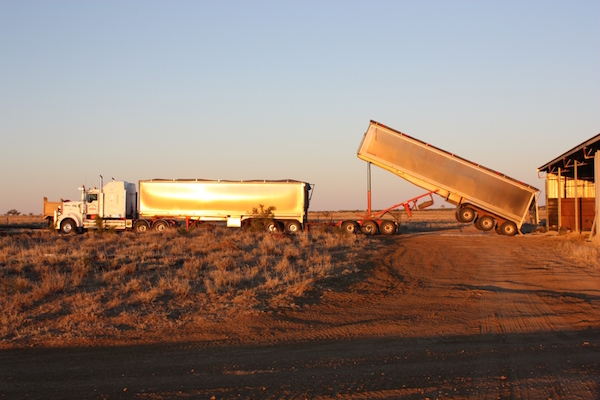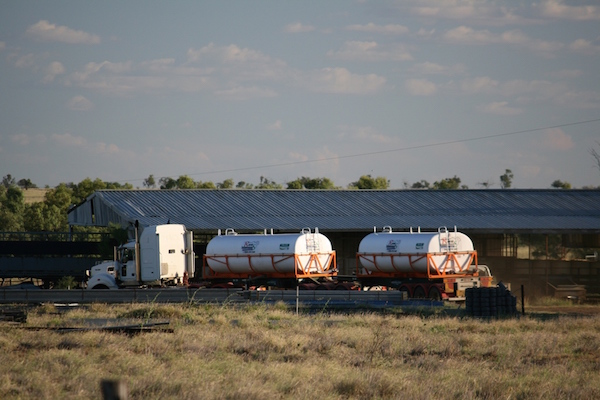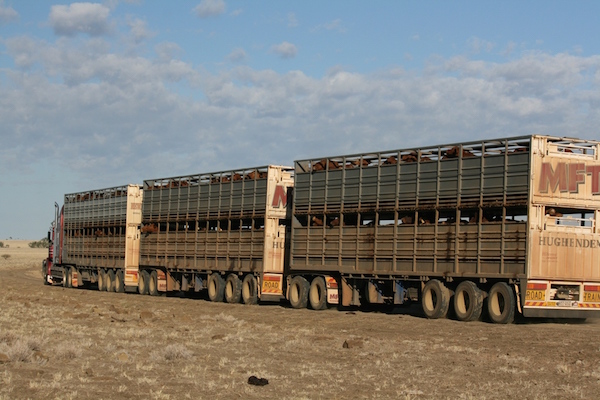Trucks – and why we need them
Host: Eversleigh Station
Written by Jenny Underwood – Eversleigh Station.
We’ve all been in that situation, haven’t we? You’re driving along the road, often in a hurry to get somewhere, and up ahead you see… a truck. So now you have to slow down, and at times, finding a suitable place to overtake that truck can prove a challenge and a test of your patience.
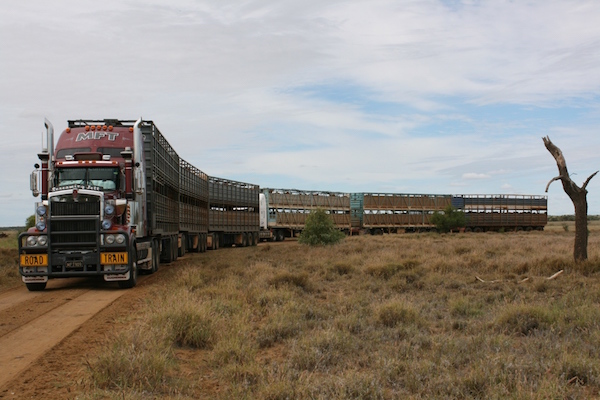
But rather than curse these trucks you should be considerate and treat them and their drivers with the utmost respect. Have you ever stopped and looked around you, at the things in your home – the food on your pantry shelves or the milk and fruit and vegetables in your fridge; the furniture in your home; the newspaper or magazines lying on your table? What about the petrol that is in your car in the garage? Have you ever wondered how and where these everyday items that we too often take for granted have come from to reach your home?
As livestock producers we rely heavily upon trucks. Without trucks delivering goods to our property and carting livestock away from it, our business would virtually grind to a halt.
And these same trucks need the livestock industry to remain viable for them to continue in business as well. If one element in the process is removed then the whole industry is in danger of collapsing.
Trucks are on the road 24 hours a day, 365 days a year. The drivers work long hours and spend a lot of their time away from their family. When asked, every truck driver who has come to Eversleigh has told us that they drive trucks because they love it! It’s not a job we would do but thankfully someone is willing to “go the distance.”
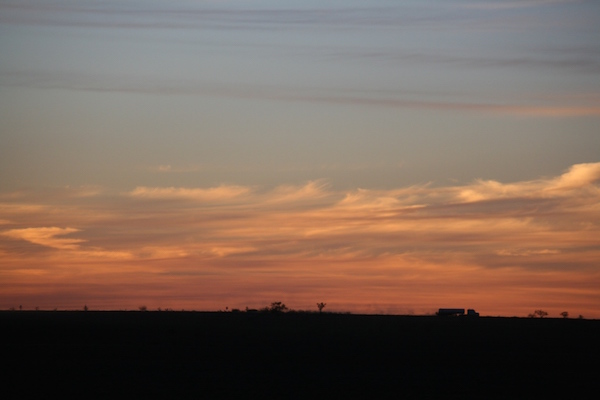
One of the supplements fed by many beef cattle producers is “lick” – a urea based product which enables the cattle to utilize pasture better. A pallet of lick holds 40 bags which weigh 25kg each; therefore each pallet holds a tonne. Freight is expensive. Our lick is made by a stockfeed company in Charters Towers (about 350km away) with the usual freight rate around $80 per tonne.
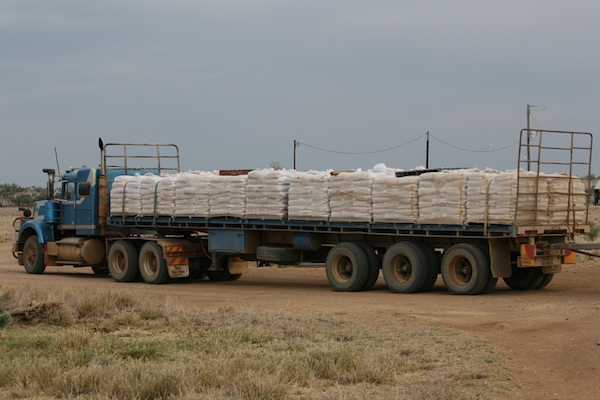
During the drought it was necessary to give our cattle further supplements such as whole cottonseed and molasses.
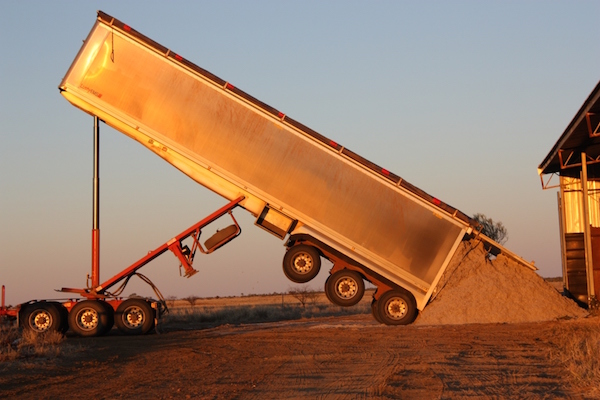
Multilik is a molasses-based product we also use to supplement feed our livestock. The product comes out in tankers which hold about 18,000 – 19,000 litres each.
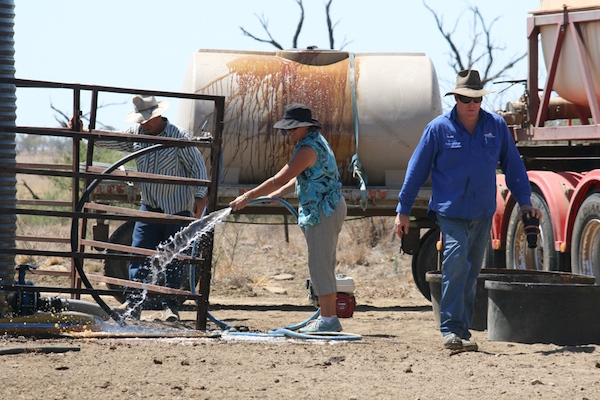
While we do have a truck of our own, there were times when it wasn’t convenient for us to collect hay. During 2014 hay was so scarce to source that consignments were coming from well over 1000 km away.
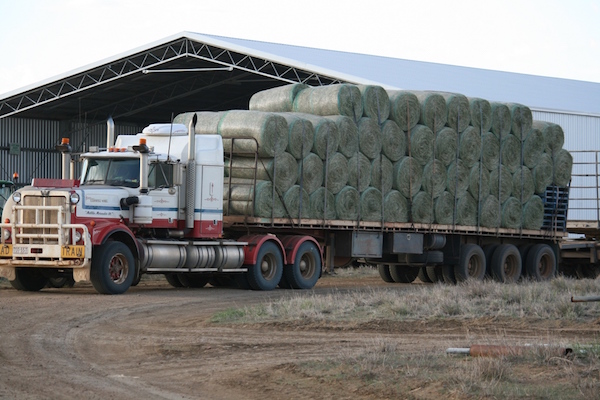
A common sight on most country roads is a livestock truck. In many parts of rural and remote Australia these trucks commonly tow up to three trailers. They are known as road trains; a road train is 53.5m long and carries approximately 11,000kg of stock per deck. There are two decks per trailer or “dog”.
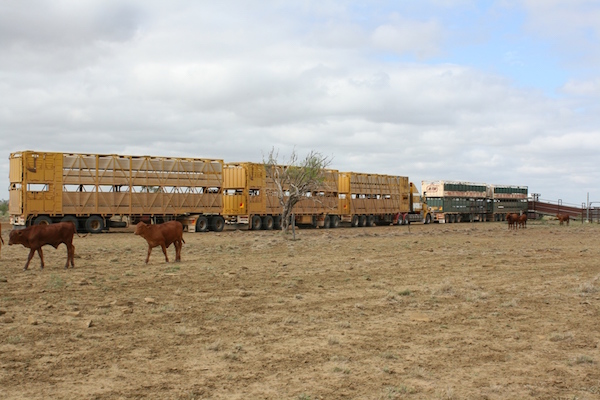
As much as possible we use local truck companies to cart our hay and livestock. These owner/drivers are a vital part of our community and more often than not good friends. As the slogan goes – “Without Trucks Australia Stops”. Thank you to all the truckies who keep Australia moving!

